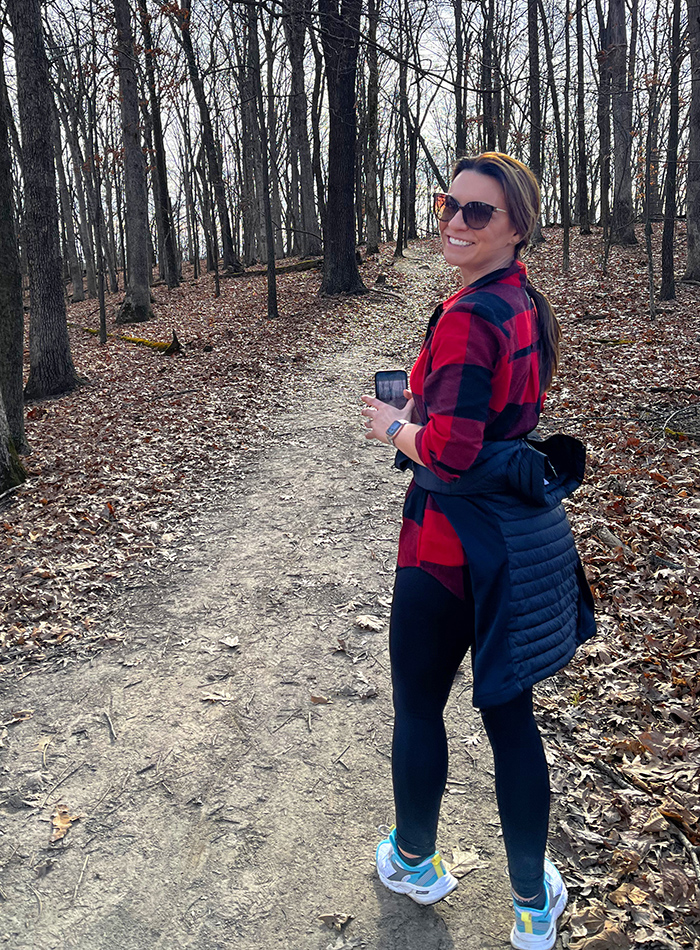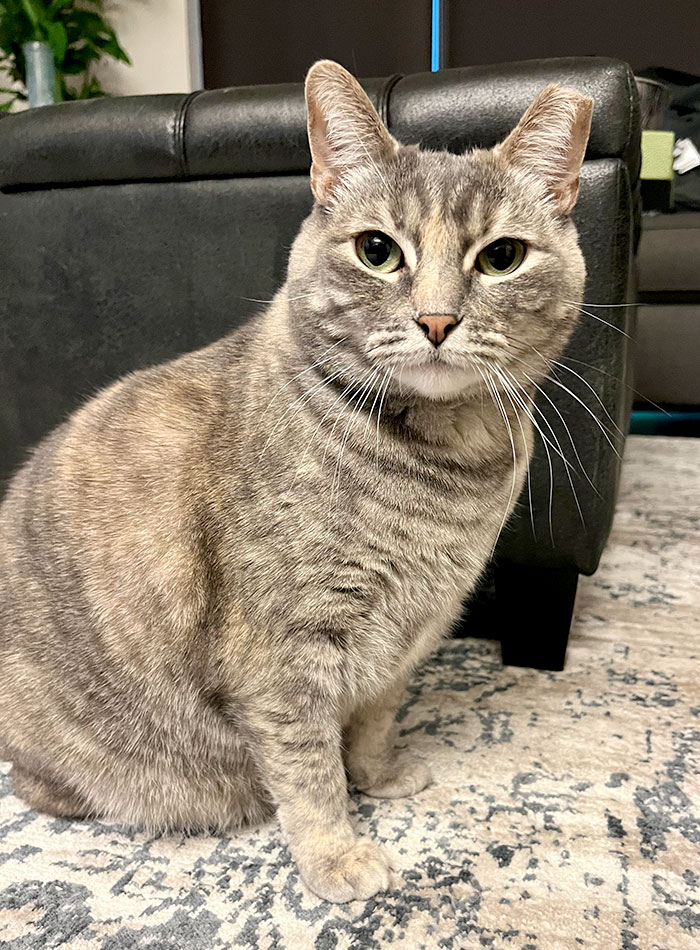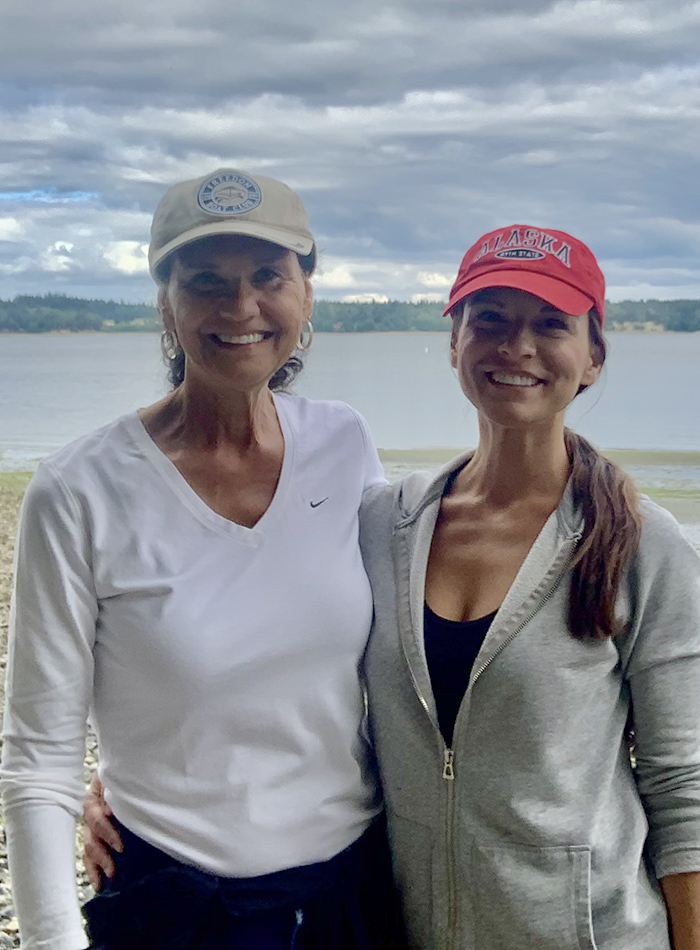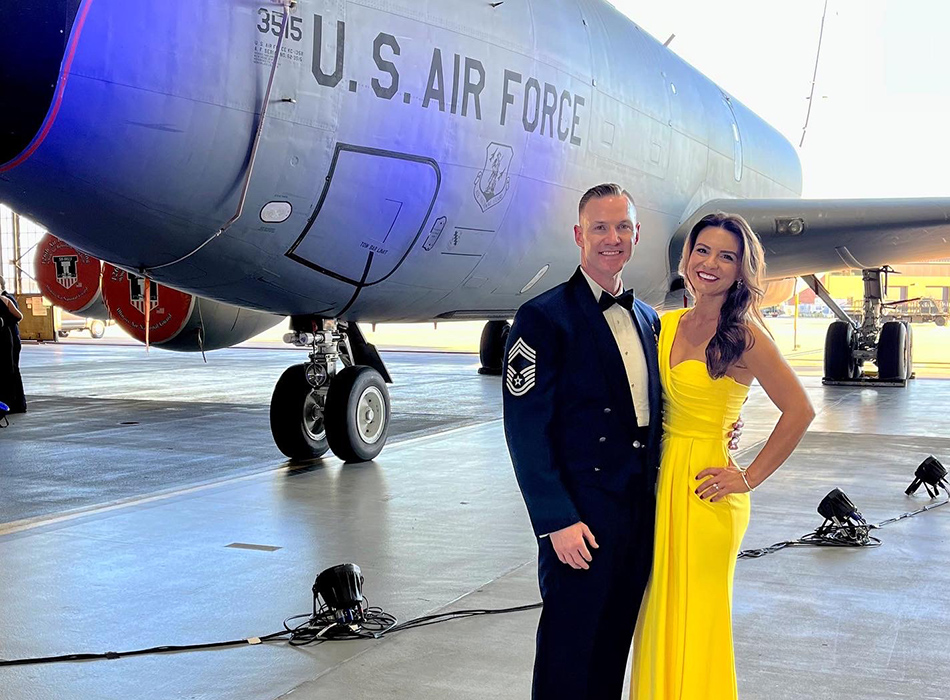You’ve worked in communications for nearly 20 years. How did you get started?
My career path hasn’t exactly been a completely straight line, but my work in the field of communications has remained consistent.
I always knew that I had a knack for communicating, sharing important information and helping people to understand why they should care about a topic, and I knew I wanted to do something meaningful. My career started in television news when I began reporting and anchoring for my college TV news station (Go Cougs!). I eventually learned I had a penchant for management and became the station’s first female general manager. I transitioned into working for local NBC affiliates in Boise, ID, and Spokane, WA, covering stories of all kinds – stranded snowmobilers, deteriorating fish habitats, elected official misconduct, and crime… lots of crime (if it bleeds it leads, as the saying goes). TV news, while important, did not pack the “make an impact on the world” punch I was hoping for, so I adapted my career, as many former journalists do, to work in communications and PR. I worked in several different PR/communications/media relations jobs and consulting gigs, before landing a job as the director and spokesperson for a law enforcement agency. This set my career on a trajectory to be focused on crisis and emergency communication. I quickly learned how critical it is to get the right information, to the right people, at the right time, so they can make the right decision – and staying calm under intense pressure is an art form. I was hooked.
Just before coming to the ESD, I worked as the regional director and national spokesperson for the American Red Cross, managing local disaster relief communications efforts and serving on a national team that traveled into disaster relief operations, (Gorge wildfires, train derailments, California wildfires, and supported multiple mass-casualty events), to manage communications and media relations efforts. As part of that work, I trained with FEMA, earning the designation of an advanced public information officer.
All of that crisis communication work must have come in handy during COVID, right?
When COVID rolled around, I certainly wasn’t happy about it, but I knew what needed to happen. I started coordinating daily meetings with our regional communications group, and we developed consistent shared resources. Although we stopped needing to meet daily, our regular regional collaboration has continued (thank goodness!). This collaboration has been the silver lining to the cloud that was COVID.
Crisis communication must be so stressful. How do you stay calm in a crisis?
Luckily, I work well under pressure and have worked for many years in some very intense situations requiring thoughtful, strategic, and prompt communications with numerous stakeholders. Being part of a solution keeps me calm and grounded. I know I can help a school leader during, what could be, the worst experience of their career. Being in a position to support school teams when it counts the most is oddly comforting and fulfilling. That and chewing a lot of gum. 😉
What advice do you have for a less–experienced communications professional when it comes to crisis communications?
While every situation has unique needs, there are some tried and true steps I rely on, including: getting your core crisis response team together to learn the who, what, when, where, and why of a situation; understanding who needs information to make decisions or take action; and being responsive to requests even if there is no information to share.
Of course, not everyone will like or agree with what you have to say, so it’s important to keep your goal in perspective. It’s not to please everyone (that’s impossible). In a crisis, your job is to help people get the information they need to make the best decision(s) in the moment, and on an ongoing basis. Remembering that important fact helps to keep information priorities in focus.
It’s all a balancing act, which is why work/life balance is an important focus I have for my team and my own well-being.


What helps you decompress after a long day?
Spending time with my husband, Clay, my mom, and my kitty, Pearl, and EXERCISE is all part of my secret sauce. If I can’t get out and go hiking and exercise in nature, I love doing cardio/aerobics videos on YouTube at home.
I also love all animals. Though we only have one cat right now, I would love to adopt a few more – I’m working on the next animal adoption right now.
Who inspires you?
My mom is an incredible source of inspiration for me. She loves and leads with grace, passion, kindness, and a quiet strength that truly amazes me. She is extremely intelligent and also exhibits calm in high-stress situations, so I guess the apple doesn’t fall too far from the tree.
My husband, Clay, is also an important source of strength and inspiration for me. He is a chief master sergeant in the U.S. Air Force and has served for more than 20 years. Clay is an exceptional leader with a tremendous amount of responsibility on his shoulders, influencing and supporting hundreds of people underneath him. Knowing and loving him has made me a better human and a better leader for my team and the region.
If you could interview any person–living or from the past–who would it be and why?
I am a big history buff and love learning. Whenever my husband and I explore a new area, I always want to learn about the history of that spot and what happened there. Choosing one person to interview is so tough! A few of my top pics include: Leonardo da Vinci, Anne Frank, Sigmund Freud, Gandhi, Elvis, and the list could go on and on.

Earlier you mentioned increased regional collaboration as a response to COVID. In your view, how has that collaboration changed the school communications landscape in Washington?
I truly believe we are stronger together and I am so proud of the way our ESD 112 communications team, regional communications leads, and superintendents collaborate and share information. That’s one good thing that came from COVID – increased collaboration and regional communication resource sharing.
During the pandemic, it became abundantly clear that what is happening in one school district is happening or has happened in another. When we connect with one another regularly to share information, learn from one another’s successes and challenges, and share messaging and resources, it’s just good practice.
Thankfully, as the pandemic has faded from the headlines, our coordinated approach has not. We continue to work smarter by having candid and regular conversations with one another. We develop shared resources that we can individually customize, we prioritize meeting and learning from one another. I believe these things have also helped us to be better overall. This partnership and regional teamwork fostered in the ESD 112 region are a great source of fulfillment for me personally. I’m truly thankful I get to be part of creating solutions for school leaders and our region.


